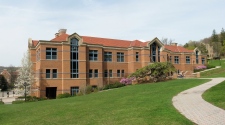Not sure what to do next what career path you want to go? It is often difficult to make a decision that affects your whole life as in what subject to study at college or university. Some already have a clear path planned out while others need some guiding. To all intents and purposes career choices can be a smorgasbord of choices. One subject that can be depended upon whatever future career you decide on is the Sciences. Science today underpins most of our industries and areas of work and on completion of a degree in science you could be looking for work in fields that cover a huge spectrum from the physical sciences to biomedical marine environmental or even the space program!
What Use is a Degree in Science?
The first response to that question would be ‘for anything’. The fact is that science is the foundation upon which most of the industry and technology in the world today runs on. Knowledge of science is about anything from computers to how a plant grows and the position of the stars in the sky. Not only the academic knowledge gained from a science course is valuable the research element on all science courses teaches students the essential skills of self study time management problem solving and creative thinking (to mention but a few). All of these skills are transferable and as such are relevant life skills and very useful in any career path that is chosen.
Science studies can be taken at undergraduate level or at Masters. Applied sciences are what is generally known as pure sciences but you can also apply for a generalized science degree, like the BSc, where the major can be chosen after the course commences. The different colleges and universities throughout the world tend to be recognized for certain areas of the sciences and due to the vast array of options available, can seem a little daunting. If you are considering studying at home or abroad, then schoolapply will help you narrow down your options. Using this portal will enable you to identify the course that appeals the most to you, what the course content will entail and what the entry requirements are. Opting to study abroad adds an extra dimension to your CV as it is recognized by most employers that the interpersonal skills gained from study outside your sphere of reference can be considerable, adding a maturity and depth to the learning experience.
Facing the Future with a Science Degree
Before you make your decision take a detailed look at what you would like to achieve and where your interests lie. Different courses all have their own course requirements but A level or equivalent in the various countries will be the norm for undergraduate study. Remember though that there are some foundation or access courses that will assist you to achieve entry grades for your subject of choice. At this point you really have to study the courses available and make a tentative choice of career direction. As indicated science encompasses a huge range of subjects so it might be useful to identify some of the major ones.
The natural sciences especially environmental sciences are garnering a lot of interest especially in sustainability of the planet and use of our limited resources. The course will involve field work data orientation lab work and theory. Like with most courses there are specialisms and here you can find: environmental management – more about the business of managing natural resources Environmental policy – more involvement with the information for creation and upholding of legislation of the use of natural resources. Environmental studies – this is often seen as the human/social aspects of environmental science often linked with anthropology.
If you are interested in relating more with people then a Bio-sciences degree may interest you. The broad range of subject matter can include genetics zoology toxicology bioinformatics plant physiology nutrition and toxicology to name but a few. This course appears to attract students who wish to work in the environment of the food industry sport sciences pharmaceutical industry local government and of course academia either as a researcher or lecturer – or both! Then of course there are sciences like astrophysics and astronomy that are becoming more mainstream and attractive thanks to people like Carl Sagan and Stephen Hawking.
What Can I Do Next ?
Fancy your chances at being a research scientist? Thanks to the Big Bang Theory TV series this is a very popular choice. Maybe you want to be less esoteric and are more interested in the natural sciences; here there are endless opportunities of employment in some of the cutting edge areas of the science as the need is increasing globally; work in fields such as urban planning renewable energy conservation agriculture natural resource management and many more. Employment in this area often means being out in the field as exploring discovering and educating are all aspects of the job. Salaries vary depending on who you work for – government charity or industry; you will find all in this arena.
A number of students opt for furthering their education in their chosen field or specialization. This often leads to better job opportunities and higher salaries! Advanced study such as with a masters can also put you in touch with leading experts in the field of study extending your exposure and network which in turn helps with your career path. Further study in the sciences is also an opportunity to move out of your comfort zone and maybe study a wider field ensuring not only the course aspects improve but that there is tangible evidence that a student’s social and personal development will also grow when undertaking studies abroad. Further training can often be funded by an employer; education healthcare and industry often support post graduate work. Salary job satisfaction challenging and demanding goals both professionally and personally can all be part of the career path a science degree can take you along.
Science A Route to the Future
Whatever career path evolves for you starting with a science degree is a positive kickoff to ensuring your options are as wide as possible. Developing the skills and knowledge in a particular field of science opens opportunities to work interchangeably. You can implement the practical applications of your chosen science within a global environment with wide ranging employment opportunities. You can choose to be an academic researching and developing at the frontiers of your chosen science. Working within the field of education encouraging and mentoring other science students. Writing and media work are also options. The endless varied opportunities are what attract students to the sciences and you can be assured whatever your interest that you will find what you are looking for.














